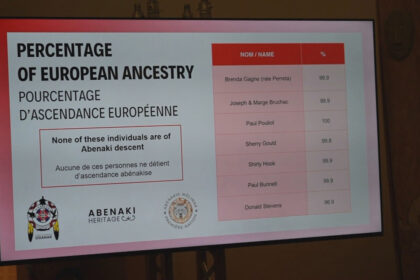Nova Scotia·AnalysisThe Progressive Conservative government has followed through, to varying degrees, with promises related to housing, health care, affordability and other issues. But the focus of the government’s second term has been on natural resource development, which was given only a vague reference in the campaign platform. PCs have delivered on about half of their promises and are showing progress on othersTaryn Grant · CBC News · Posted: Nov 28, 2025 5:00 AM EST | Last Updated: 1 hour agoListen to this articleEstimated 6 minutesThe audio version of this article is generated by text-to-speech, a technology based on artificial intelligence.Premier Tim Houston and his wife and daughter at the PC party election headquarters in New Glasgow, N.S., on Tuesday, Nov. 26, 2024. (The Canadian Press)In the 12 months since the Houston government won its second mandate, it’s made progress or fully delivered on many of the promises made during last fall’s election campaign. The platform suggested the government would put its heft into making life more affordable, with attention also going to housing and health care. It gave nods to soaring rates of violence in schools and gridlock traffic in the capital region.The Progressive Conservative government has indeed followed through, to varying degrees, with promises related to all those issues. But the focus of the government’s second term has been on natural resource development, which was given only a vague reference in the campaign platform.First, what’s been delivered. In spring 2025 Nova Scotia saw a one-point cut to provincial sales tax, an increase to the basic personal amount for income tax and a one-point cut to the small business tax rate. Tax cuts might be popular among voters, but the resulting revenue losses are probably to the chagrin of the Finance Department, which is now grappling with a $1.2-billion deficit. As it works on next year’s budget, the department has already directed departments to slow down hiring and explore some potential cuts. The PC government also delivered free shingles vaccines for people 65 and older, a two-step increase to the minimum wage (bringing it to $16.50 this fall), and did away with bridge tolls and parking fees for hospital patients and visitors.Another checkmark goes beside the promise to make more vacant public land available for affordable housing, though it’s a case that shows a promise kept doesn’t always equate to instant gratification or impact. Yes, the PCs offered up two new pieces of land in the past year. No, there aren’t any new housing units to show for it. The land-for-housing program started in 2021 and land added in the government’s first term has so far resulted in a total of 18 new units, with nine of them renting below market rates. For people now living in those units, the program likely seems worthwhile, but overall it would be hard to call it a runaway success. And given how viscerally some people are still feeling the housing crisis, some might have expected more from the PC platform on housing.The only other housing promise was to help first-time homebuyers to make a smaller down payment. That hasn’t yet happened, although the province says “news will be coming very soon” about the program.Another pledge that received mixed reviews was free hospital parking. While it wouldn’t be a problem in smaller communities, in Halifax it underscored a shortage of parking spaces around hospitals and spurred staff complaints about being squeezed out of lots and parkades at their workplaces.Other promises show signs of progress, or the government at least says it intends to follow through. See the full list below. The PCs are, after all, just one year into a mandate that could last as long as four, so they still have time to make good on all their pledges, even if there’s no sign of movement yet.The big pivotOne section of the election platform talks about strengthening the economy through natural resource development, but it didn’t garner much attention during the campaign. That’s probably partly because the party didn’t give it the platform of a stand-alone announcement — as it did with items such as a menopause centre of excellence and nixing bridge tolls — and partly because there were no concrete promises.“We will realize the potential of our natural resources to produce the energy of tomorrow,” one campaign document said. “We are focusing on building the economy for the long term by taking advantage of our natural resources.”Campaign materials referred to the province’s critical mineral potential, and the possibility of kick-starting local hydrogen and sustainable aviation fuel industries.Premier Tim Houston has said it wasn’t yet apparent at campaign time how necessary the push for resource development would be. But a year on, it’s now clear this work is the fulcrum of this mandate.A couple months after the election, Houston started talking more explicitly about his vision for natural resource development, and a flurry of government action ensued.The government lifted restrictions on fracking and uranium exploration and mining, streamlined environmental assessment and industrial permitting processes, opened a new call for offshore oil and gas exploration, and crafted an ambitious plan for offshore wind development — the list goes on.Many of those actions have faced significant pushback over fears about environmental protection and human health, but Houston has been insistent that anything pursued will be done safely. It’s necessary, he says, to find new revenue streams as population growth and the economic boom of the past few years slows.The province needs a stronger economy, his refrain goes, to pay for things like schools, housing and health care.Has health care been sidelined?The issue that helped drive the Tories into government in the first place may appear to have taken a back seat this time around. Health-related promises are fewer than they were in 2021, and even among the new promises, one is not directly related to health care (free parking) and another is already behind schedule (legislation for independent evaluations of the health authority was supposed to be tabled by earlier this year). But sitting in the back seat isn’t the same as stopping or being left behind. Katherine Fierlbeck, the McCulloch professor of political science at Dalhousie University, gives the PC government ongoing credit for its commitment to health care in its first term.“It takes some time to be able to see the net effect of whether this is going to work well or not,” she said.Fierlbeck, who studies health policy, said meaningful change in health care requires governments to “pump the money in,” which could be more challenging to do in the face of a sizable deficit and a contraction of money coming in. But momentum could carry the system forward for some time, she added.How long things can coast before the big bet on natural resources will have to prove its worth — that might be a subject for the next election.MORE TOP STORIESABOUT THE AUTHORTaryn Grant covers daily news for CBC Nova Scotia, with a particular interest in housing and homelessness, education, and health care. You can email her with tips and feedback at taryn.grant@cbc.ca
One year into his 2nd term, Houston has lived up to many campaign promises, but he’s focused elsewhere











